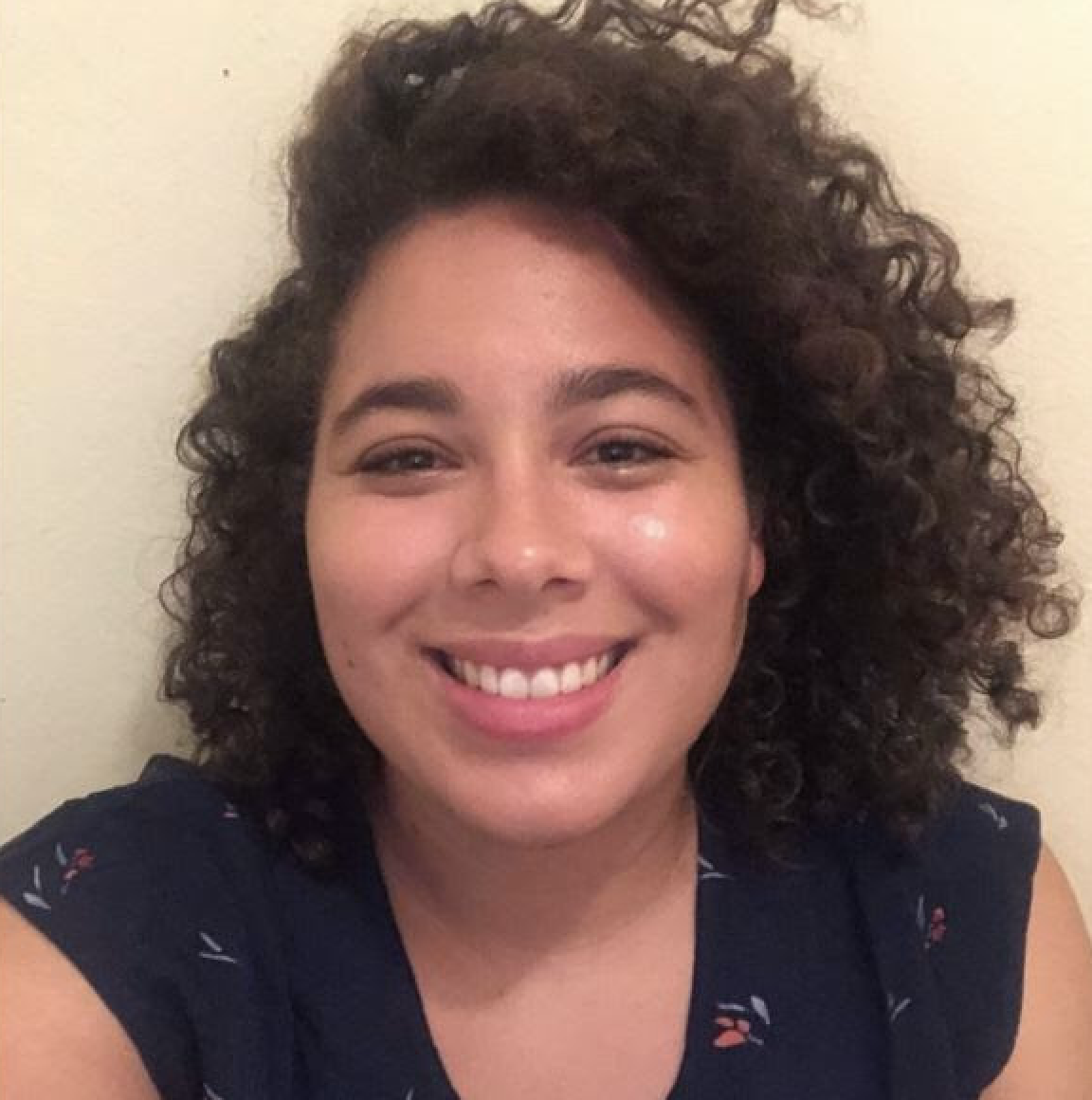Member Spotlight Anaïs Lugo-Guercio 
“I really enjoyed empowering people to find their paths, and to find their words to get to those paths.” Anaïs Lugo-Guercio is an Occupational Therapy student at Tufts University. A member of NSGP since 2019, Anaïs has become actively involved with the Diversity, Equity, & Inclusion Committee, facilitating the Weekly Check-ins for thirteen weeks last fall. Anaïs also co-led (with Lesley McGhee) a DEI Committee-sponsored virtual discussion group for BIPOC (Black, Indigenous, and People of Color) in the summer of 2020 entitled Radical Release; Honoring our Legacies, Liberating ourselves from Anti-Black Racism. Anais will co-facilitate a workshop entitled Culture Box: Exploring Culture in Group Context at the 2021 NSGP Conference. In an hour-long interview, Anais spoke with Nadia Khatchadourian, NSGPeople co-editor, about her life, both personal and professional. Maddie Freeman, NSGPeople co-editor, acted as scribe. Nadia: What was your early life like? Nadia: Tell us about your family. Nadia: Where did you go to school? I went to undergrad at Smith College, majoring in Biology and French. It was a very interesting place. I was exposed to a lot more experiences. That’s been really helpful. It was by no means a perfect route but there was a lot of space to grow and find a lot of things. It was very different from the regimented feel of a Catholic school. I’ve been in many all-women education spaces. Currently, I’m working in a clinical research lab with mostly men; I wasn’t prepared for the patriarchy. I have a different set of rules that I think by, having been in spaces where women have a more dominant voice. I’ve been living in Boston for most of my time out of college. Nadia: What are some of your favorite activities? Nadia: What have been some formative work experiences for you? I felt my privilege of this being my mother tongue, being a US citizen, having a 4-year degree. People would ask, “Can you read over my resume?” My answer was always“Yes.” I really enjoyed empowering people to find their paths, and to find their words to get to those paths. After that, I worked at Boston University as a lab technician and lab manager of a very small college. At BU, when you work there, you can take classes at a huge discount. I thought, what do I want to do? I majored in Biology: I could do health care, or a PhD track. I’m a people person. I really like engaging with people. I am very empowered by people being empowered. OT became a really good fit. I shadowed OTs, checked out what people did, and networked. I really got to explore what was going on at BU, at that campus, in that community, and that got me on the track into OT. I’m now a lab manager at a clinical research company. Nadia: Where do you go to school for OT? The thing that resonated the most with me was my Groups course with Mary. A lot of experiences I had in my communities, I finally had the language for it. Ah, this makes sense. I ran an after-school cooking course with high schoolers in special education in Malden. There were quite a few kids about to age out of the program and it helped them with cool functional skills. Also, for a few summers, I worked at a community day camp. I have a friend from Smith and their wife who’ve started “The Tiny Activist” (https://thetinyactivist.com/), which is about a decolonized, equitable, radical approach to educating children and I bounced ideas off them. It gave me the lens of not starting with the status quo. My approach is not going in and making assumptions about the communities I’m entering, not making assumptions that I know exactly what they want. I’m not a licensed OT yet. It’s really cool to be a student again in my late 20s. All of the things I didn’t get to do as an undergrad I got to do. I wasn’t able to enjoy what the university had to offer me until I was an adult. At Tufts, I was in a fellowship through the office of the Dean, focused on diversity and inclusion and uniting the grad school as a community. I completed a needs assessment, looking at, “How do we unite people and get them what they want?” along with community dialogues about art pieces. I also ran a mentorship workshop. It was a multi-branched approach of how you can connect on all levels. Nadia: Is there a specific focus within OT or populations you’d like to work with? Nadia: How long have you been a member of NSGP? Nadia: When did you join the Diversity, Equity, & Inclusion Committee? Nadia: What was your experience moderating the DEI Committee’s Weekly Check-Ins last year? The check-ins are about finding ways to connect outside of what we have in common, not making it all about me and my perspective. So I was always conscious of not trying to create a narrative that was not my own. Nadia: What’s the first concert you ever attended? Nadia: What’s the last book you read? Anaïs: My Grandmother’s Hands by Resmaa Menakem. I read it in a book club with my family: my grandmother, aunt, mom and I. So it was intergenerational, it was all adult women who identify as Black, and it was a “group,” so I could put on some of my professionally-oriented skills to get members on task. I knew this was a book about ancestral trauma and I figured the best community to read this with was my family, my direct lineage. Also, my grandma learned to Zoom, which is an amazing gift. Nadia: You’ve shared that you love to travel. What is it about traveling that excites you? Nadia: If you had a magic wand and could make NSGP whatever you wanted it to be, what would that look like? |
